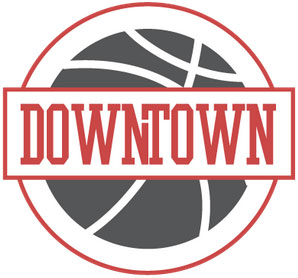The NBL is ready to allow more imports in the league in time for the 2016-17 season according to a recent article from The Sydney Morning Herald.
“The NBL is set to increase the import quota for clubs next season to three to ensure the talent pool is not diluted [when Brisbane re-enters the league],” Paul Suttor wrote in the story published last Saturday.
The NBL hasn’t announced a change to the rule, but the idea of allowing one extra import per team has varied levels of support from some involved with the league.
Cairns Taipans coach Aaron Fearne is one of those in favour of the move.
“There’s two questions: are we about developing players for a national program, or are we a source of entertainment. And I think probably at the end of the day it’s number two for me,” Fearne told Downtown.
Fearne noted that a large majority of players in the Boomers program play overseas, and said if teams use the extra import slot on the right person, the league could improve as an entertainment product.
“Those guys that have the ability to handle the ball and make plays one-on-one, and finish on the rim with athleticism, and get after it defensively, and block shots and grab big rebounds, that’s what’s entertaining to the general public,” he said.
Other potential law changes—like tweaks to the salary cap or abolishment of the player points system—would influence the effect of an added spot for imports.
Unless the league increases the size of rosters, one more import on a team means one less spot for an Australian. And for those locals who retain a roster spot, their role could be reduced.
“It obviously puts pressure on the Australian guys to perform, they’re going to have to lift their games as well,” Fearne said.
“But we’ve obviously got a lot of really, really good Australians in the league as well, so I think it’s a win-win and something that I’m definitely very supportive of.”
Andrew Gaze explained on an Aussie Hoopla podcast released last Saturday that he’s also in favour of the rule change.
“Any time we have an opportunity to put better talent on the floor and make the product better, then we have a good situation,” Gaze said when asked about potential changes including three imports per team, more marquee players and spots for Asian players.
“Ultimately, the better [the] product on the floor, the more Australian players are going to improve and the more sustainable the sport will be because of the product.”
Former NBL player and coach Alan Black took a different view when speaking to the ABC, suggesting that allowing an extra import per team would be a bad move for the league and would discourage Australian players from playing in the NBL.
Sydney Kings guard Jason Cadee said in an interview with Downtown that he’d hope the rule alteration doesn’t take jobs from Australian talent.
“If it doesn’t do that and it allows teams to be better and it brings fans through the door and gets more support, then I guess that’s the way it is and hopefully it works out,” Cadee said.
He was unsure about the effects of an extra import spot for each team because he hasn’t seen the league play under those rules before. But he said if clubs brought in guys like Josh Childress and Jerome Randle who are willing to fit into their team, then that would make the NBL more entertaining.
Cadee, coming off a season where he was the Kings’ starting point guard and averaged 14 points and 3.5 assists with 41.4 percent shooting from the field, is aware he could be affected by an imports increase.
“It definitely makes it interesting now and I guess difficult to know whether I would hope to have a starting spot again or not, but that’s something you’ve got to come in and fight for,” he said.
There’d be other implications, too. Fearne said recruiting three imports in an offseason will put pressure on the coaching staff to find the right mix—they can’t bring in three players who all want to score whenever they get the ball.
“I always procrastinate a lot when I’m trying to decide on who I want to go with [for] an import, so it’ll make it even tougher with three of them,” he said.
An extra import spot won’t certainly provide an advantage to wealthier clubs because good imports can still be found on a modest budget.
“Over the years we’ve had pretty good imports here with not a lot of money to spend on imports,” Fearne said of the Taipans, whose international recruits include Ron Dorsey, Jamar Wilson, Demetri McCamey and Scottie Wilbekin.
Fearne also referred to the job Gordie McLeod did in Wollongong with similar financial limitations. Tywain McKee and league MVP winners Gary Ervin and Rotnei Clarke are among those who were brought to the NBL by McLeod and the Hawks—though so are the less successful Joevan Catron, Showron Glover and Jahii Carson.
“And then there’s teams that spend lots of money on imports and they’re not the right fit, so you’ve just got to do your research,” Fearne said.
“For our club, we’ll definitely want to bring in three imports that can make an impact and help you win games.”
Cadee said playing on a team with three imports will be OK if the right guys are recruited—the importance of finding players who fit is something Fearne and Cadee agree on.
“If clubs are after good people as well as good talent,” Cadee said,
“I think it’ll be just fine.”






Please comment with your real name using good manners.